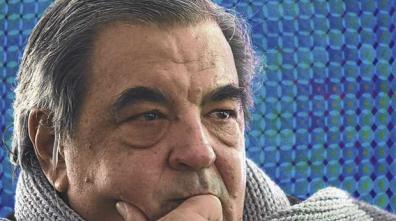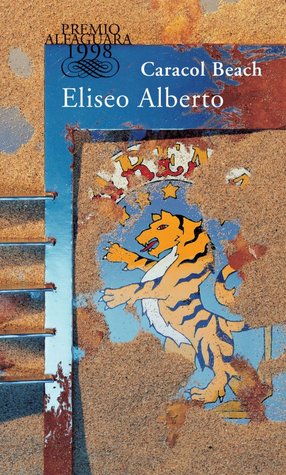The Cuban Revolution occupied a central place in the imaginary that defined the political commitment of the left as the assault on power. “EN UN RINCON DEL ALMA” (IN A CORNER OF THE SOUL), does not look at that epic with nostalgia, is an exceptional document on Cuba and an excited record of the memory of the novelist, Cuban journalist and writer Eliseo Alberto, died in July of 2011 in Mexico City, where Had resided since 1990.
“IN A CORNER OF THE SOUL” by Jorge Dalton, raises his skirt to one of the most moving chapters of the twentieth century and reveals some of the most intimate parts of the Cuban Revolution; Some are beautiful, others are just the opposite. A chronicle of the emotions in the spiral of several decades of the twentieth century could help to understand not only the birth, rise and crisis of a revolutionary gesture that seduced some and cursed others but also explained to many when, how and Why we were losing reason and passion. Reason dictates; The blind passion. Only the emotion moves. Because emotion is ultimately the only reason for passion.
A documentary about the Cuban writer Eliseo Alberto shows his critical vision of the future of his country after more than 50 years of Revolution and proposes the reconciliation between the inhabitants of the Island.
The film is “the truth” of Eliseo Alberto (Arroyo de Naranjo, Cuba, 1951, Mexico City, 2011) before the revolutionary process of that divided country, in which all “want to impose a point of view” from the official position But also from the opposition, says its director, Jorge Dalton.
The Salvadoran Cuban director visits the International Film Festival of Guadalajara (FICG), which concludes this Friday, for the screening of In a corner of the soul, with which competes in the category of Best Feature Documentary Ibero-American.
Dalton interviewed Eliseo Alberto in 2010 for about four hours, at the writer’s request. The recording of this conversation gave rise to the documentary produced in El Salvador and shot in Mexico and Cuba four years later.
The feature film shows the posture that the author of Eternity finally begins on a Monday (1992) and Caracol Beach (1998) had regarding the revolutionary process of the Island and its position to the continuity of its leaders, headed by Fidel Castro.
“I had a very critical view of the permanence of the power of the leaders and the lack of freedoms of thought, when the Revolution was made to expand that freedom,” explains the documentary.
Lichi, as his friends knew, also questions the future of the Revolution and the right of Cubans to live on an island in peace.
“It is a process that we do not know if it will continue or will succumb on its own, there is no need for an American invasion, the process is in danger of disappearing for internal reasons,” says Dalton, an intimate friend of the writer and screenwriter, who lived In Mexico 20 years.
In the island, he adds, economic conditions prevail that will define that future, because “the global economy is hitting” Cubans.
In the documentary he sees an Eliseo Alberto convinced of a process of reconciliation between “both banks of the conflict”.
“It is an island that has to open to the world, a nation that has the right to choose a better future, a nation that has the right to live in peace, to reconcile, to forgive, to shake hands and to sign peace among Cubans That is the message of my film and also of Eliseo Alberto, “says the director.
“It is an island that has to open to the world, a nation that has the right to choose a better future, a nation that has the right to live in peace, to reconcile, to forgive, to shake hands and to sign peace.”
Dalton will travel to Mexico City in the next few days to review the poet’s archive and select those unpublished scripts that could be made into films.
“The family has asked me to collaborate to see what we can do with everything left,” said the director and founder of the International School of Cinema and Television of San Antonio de los Baños, Cuba.
He affirms that the documentary has served for the new generations to know the thought of Eliseo Alberto and want to approach his work.
The FICG concludes this Friday with the award of the Mezcal prize to the best Mexican films and the Mayahuel to the best shorts and feature films and documentaries of Ibero-America.
Agencies / 14ymedio / Mariana Gonzalez / Internet Photos / YouTube / Arnoldo Varona / TheCubanHistory.com
THE CUBAN HISTORY, HOLLYWOOD.
FOLLOW US ON TWITTER AND FACEBOOK. THECUBANHISTORY.COM

DOCUMENTAL VIDEO “EN UN RINCON DEL ALMA” DONDE EL ESCRITOR ELISEO ALBERTO RETRATA SU VISIÓN DE CUBA.
La Revolución Cubana ocupó un lugar central en el imaginario que definió el compromiso político de la izquierda como el asalto al poder. “EN UN RINCÓN DEL ALMA”, no mira aquella épica con nostalgia, es un documento excepcional sobre Cuba y un emocionado registro de la memoria del novelista, periodista y guionista cubano Eliseo Alberto, fallecido en julio de 2011 en la Ciudad de México, donde residía desde 1990.
“EN UN RINCÓN DEL ALMA” de Jorge Dalton, le levanta la falda a uno de los capítulos más conmovedores del siglo XX y nos revela algunas de las partes más íntimas de la Revolución cubana; algunas son hermosas, otras son todo lo contrario. Una crónica de las emociones en la espiral de varias décadas del siglo XX cubano, podría ayudar a entender no solo el nacimiento, auge y crisis de una gesta revolucionaria que sedujo a unos y maldijo a otros sino, además explicarnos a muchos cuándo, cómo y por qué fuimos perdiendo la razón y la pasión. La razón dicta; la pasión ciega. Solo la emoción conmueve. Porque la emoción es a fin de cuentas, la única razón de la pasión.
Un documental sobre el escritor cubano Eliseo Alberto muestra su visión crítica del futuro de su país tras más de 50 años de Revolución y propone la reconciliación entre los habitantes de la Isla.
La película es “la verdad” de Eliseo Alberto (Arroyo de Naranjo, Cuba, 1951, Ciudad de México, 2011) ante el proceso revolucionario de ese país dividido, en el que todos “quieren imponer un punto de vista” desde la postura oficial pero también desde la oposición, dice a Efe su director, Jorge Dalton.
El realizador cubano salvadoreño visita el Festival Internacional de Cine de Guadalajara (FICG), que concluye este viernes, para la proyección de En un rincón del alma, con el que compite en la categoría de Mejor Largometraje Iberoamericano Documental.
Dalton entrevistó a Eliseo Alberto en 2010 durante cerca de cuatro horas, a petición del escritor. El registro de esa conversación dio origen al documental producido en El Salvador y rodado en México y Cuba cuatro años más tarde.
El largometraje muestra la postura que el autor de La eternidad por fin comienza un lunes (1992) y Caracol Beach (1998) tenía respecto al proceso revolucionario de la Isla y su postura ante la continuidad de sus dirigentes, encabezados por Fidel Castro.
“Tenía una visión muy crítica de la permanencia del poder de los dirigentes y de la carencia de libertades de pensamiento, cuando la Revolución se hizo para expandir esa libertad”, explica el documentalista.
Lichi, como lo conocían sus amigos, cuestiona también el futuro de la Revolución y el derecho de los cubanos a vivir en una isla en paz.
“Es un proceso que no sabemos si va a continuar o va a sucumbir por sí solo, no hace falta una invasión norteamericana, el proceso está en peligro de desaparecer por razones internas”, asegura Dalton, íntimo amigo del escritor y guionista, que vivió en México 20 años.
En la Isla, añade, prevalecen condiciones económicas que van a definir ese futuro, pues “la economía global está golpeando” a los cubanos.
En el documental se ve un Eliseo Alberto convencido de un proceso de reconciliación entre “ambas orillas del conflicto”.
“Es una isla que se tiene que abrir al mundo, una nación que tiene el derecho de escoger un futuro mejor, una nación que tiene derecho a vivir en paz, de reconciliarse, perdonarse, de darse la mano y firmar la paz entre los cubanos. Ese es el mensaje de mi película y también de Eliseo Alberto”, asegura el realizador.
“Es una isla que se tiene que abrir al mundo, una nación que tiene el derecho de escoger un futuro mejor, una nación que tiene derecho a vivir en paz, de reconciliarse, perdonarse, de darse la mano y firmar la paz”.
Dalton viajará a la Ciudad de México en los próximos días para revisar el archivo del poeta y seleccionar aquellos guiones inéditos que podrían convertirse en películas.
“La familia me ha pedido colaborar a ver qué podemos hacer con todo lo que dejó”, adelanta el director y fundador de la Escuela Internacional de Cine y Televisión de San Antonio de los Baños, en Cuba.
Afirma que el documental ha servido para que las nuevas generaciones conozcan el pensamiento de Eliseo Alberto y quieran acercarse a su obra.
El FICG concluye este viernes con la entrega del premio Mezcal a las mejores películas mexicanas y el Mayahuel a los mejores cortos y largometrajes de ficción y documentales de Iberoamérica.
Agencies/14ymedio/Mariana Gonzalez/ Internet Photos/ YouTube/ Arnoldo Varona/ TheCubanHistory.com
THE CUBAN HISTORY, HOLLYWOOD.








